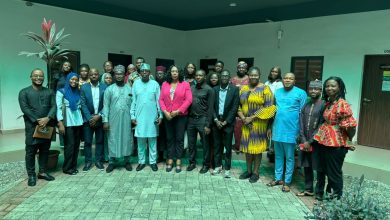Nigeria: Battles for Birth
Beyond Statistics: Groundbreaking Efforts to Save Mothers and Babies Across Nigeria

Despite steady global progress in reducing maternal and child mortality, Nigeria continues to face daunting challenges in safeguarding the lives of mothers and newborns.
As of 2023, Nigeria accounted for nearly 20 per cent of global maternal deaths, according to the World Health Organisation (WHO).
This grim statistic underscores the need for sustainable interventions, especially in rural communities where healthcare access remains limited.
While sub-Saharan Africa has seen a decline in maternal mortality over the past two decades, the pace has been uneven.
The WHO notes that maternal mortality rates in the region dropped by 33 per cent between 2000 and 2020.
However, this progress falls short of the Sustainable Development Goals (SDGS), which aim to reduce maternal deaths to fewer than 70 per 100,000 live births by 2030.
Nigeria’s current rate, estimated at 512 deaths per 100,000 live births, remains far above that target.
Nevertheless, a growing network of policy reforms, government-led programmes, and community-based initiatives is beginning to reshape maternal and child health in Nigeria.
These efforts now extend beyond physical care to include mental health, economic empowerment, and targeted health insurance coverage for vulnerable populations.
One of the most overlooked aspects of maternal health in Nigeria is mental well-being.
Recently, Maimunah Kadiri, a consultant neuro-psychiatrist, raised concerns over the rising prevalence of postpartum depression among new mothers in under-resourced rural settings.
“Many women suffer in silence due to the stigma surrounding mental health and a lack of professional support during and after pregnancy,” she said.
To address this gap, the Mental Health Act, signed into law in 2023, seeks to integrate mental health services into Nigeria’s primary healthcare system.
Mental health expert Prof. Taiwo Sheikh stated that the law recognises mental wellbeing as an integral part of overall health and relevant for women experiencing the psychological toll of childbirth.
At the national level, First Lady Sen. Oluremi Tinubu has urged stakeholders, including governments, donors, and communities, to intensify efforts to reduce maternal and infant deaths.
It is worthy to note that her advocacy aligns with a broader recognition that maternal health is not only a human rights imperative, but also central to sustainable development.
A leading example of subnational innovation is the Maternal Mortality Reduction Innovation and Initiatives (MAMII) programme, launched by the Federal Capital Territory Administration (FCTA) under Dr Adedolapo Fasawe.
MAMII provides free antenatal care, delivery services including Caesarean sections and one year of postnatal care for mothers and infants.
The initiative also addresses transportation challenges that often delay access to urgent care during childbirth.
“Removing financial and logistical barriers is essential to saving lives; we are ensuring no woman is left behind because of poverty or distance,” Fasawe explained.
To institutionalise access to quality healthcare, the FCTA has also scaled up its FCT Health Insurance Scheme (FHIS).
According to Mr Lere Olayinka, the Senior Special Assistant on Public Communications and social media to the FCT Minister, more than 198,000 residents, including thousands of pregnant women, have been enrolled.
“Under the FHIS, beneficiaries access both primary and secondary care, as well as critical maternal health services like Caesarean sections and postnatal care,” Olayinka said.
He added that this model offered a comprehensive safety net for expectant mothers, especially those in informal or low-income settings.
Outside the FCT, states like Kwara are also making impactful strides.
According to the state’s Commissioner for Health, Dr Amina El-Imam, Kwara has rolled out free C-section operations across designated health facilities, along with antenatal care at 193 primary healthcare centres through the Basic Health Care Provision Fund (BHCPF).
The state has also integrated family planning services by providing free contraceptive commodities.
These initiatives are helping reduce unplanned pregnancies and improve maternal health outcomes.
Beyond clinical interventions, economic empowerment has emerged as an important factor in maternal health.
The Supporting Women’s Increased Access to Family Planning through Pharmacies and Patent Medicine Vendors (SWIFT) project, led by the Society for Family Health (SFH) and supported by the Gates Foundation, is one of such.
It is focused on enhancing access to Long-Acting Reversible Contraceptives (LARCS) in Kano, Kaduna, and Lagos.
The SWIFT project also trains female pharmacists and patent medicine vendors to deliver family planning services, promoting both women’s health and entrepreneurial opportunities.
“This approach not only improves access but also empowers women as health providers and decision-makers,” said an SFH representative.
Collectively, these national and local efforts represent a holistic strategy, one that acknowledges the interplay between physical health, mental well-being, and socioeconomic empowerment.
Through flagship programmes like MAMII, the FCT Health Insurance Scheme, and SWIFT, Nigeria is laying the groundwork for long-term progress in maternal and child health.
As the global community marks World Health Day 2025 under the theme ‘Healthy Beginnings, Hopeful Futures’, Nigeria’s strides reveal a growing commitment to ensure every mother and child has access to quality healthcare and support.
Stakeholders believe that if sustained and expanded, these initiatives could bring the country closer to achieving the SDGS and, ultimately, safeguarding the futures of generations to come.
By Abiemwense Moru (NANFeatures)




